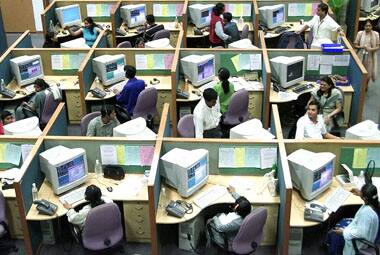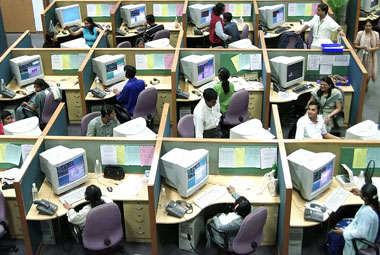Times will be getting tougher for employers in India if latest research from global management consultancy Hay Group is any indication. Research has found that India will top global employee attrition rates in 2013, at a worrying 26.9 percent.
The new research, conducted in conjunction with the Centre for Economics and Business Research, finds that globally, 49 million more employees will leave their employers over the next five years, compared with 2012. The study, called Preparing for Take-Off, covers 700 million employees in 19 countries worldwide, based on a Hay Group macroeconomic model which analyses the main factors affecting employee turnover across the world.
A Hay Group statement said the study finds that global firms will face an imminent threat of rising employee turnover, as a result of expected improvement in economic and labor market conditions in the next five years. As growth builds and employment opportunities increase, the worldwide employee turnover is set to accelerate in 2014, after having barely moved between 2010 and 2012. “India finds itself in the eye of the storm,” Hay Group points out.
[caption id=“attachment_851195” align=“alignright” width=“380”]
 Reuters[/caption]
Reuters[/caption]
On a global basis, the study finds that the number of workers taking flight is expected to reach a staggering 161.7 million in 2014 - a 12.9 per cent increase in people leaving compared to 2012. Average employee turnover rates over the next five years are predicted to rise from 20.6 to 23.4 per cent, and the number of global departures in 2018 will stand at 192 million, the study says.
Says Mohinish Sinha, Leadership and Talent practice leader, Hay Group India, “Indian economic growth is set to pick up, and this will be warmly welcomed by businesses. But the upturn will come with a risk - driven by an ambitious middle class, employers at India Inc are likely to face a talent exodus in the coming year. Already, we see employees around the country starting to seek new job opportunities as growth returns and labor markets begin to pick up.”
Based on information from over 5.5 million employees across the world, Hay Group conducted a detailed analysis of its employee opinion database. This identified the five factors, which are the most consistent predictors of employee engagement and commitment - confidence in leadership; an opportunity for career development; autonomy; supportive work environment; and, appropriate compensation. Employees planning to stay in their company for more than two years score their employers over 20 percentage points more favorably on these five factors than those employees who are aiming to leave in the same period, the study has found.
In the Asia Pacific, including in India, over 60 per cent of employees are supportive of the direction and goals of their organizations, and have confidence in the senior management. Three in every four Indian employees also feel that they have adequate authority, as well as they are supported in being innovative and creative.
Compensation woes
Indian employees, however, expressed concerns about the fairness of their compensation (with 55 per cent expressing such concern) and the extent to which benefits meet their needs (48 per cent). One in every three employees expressed concern over a lack confidence in being able to achieve their career objectives with their current employers (37 per cent); as a result, they are concerned about opportunities for learning and development (39 per cent) and supervisory coaching for their development (36 per cent).
Sinha says, “A significant number of Indian employees have expressed concern over their firms’ ability to provide the five retention factors - especially when it comes to the opportunity for career development. Organizations need to give serious thought to how they stack up against these factors now before the job markets begin to improve. Those who don’t are likely to find employees exiting in increasing numbers as more opportunities become available.”
Average turnover rates are forecast to be higher in countries where market prospects are better - so employees in emerging markets will continue to have opportunities and be among the first to take flight. The Asia-Pacific will experience its largest spike in employee turnover levels this year, as employment growth and wealth creation continue energizing an aspirational and mobile workforce, the study has said. Organizations in the region will experience the highest increase in turnover rates worldwide, rising from 21.5 to 25.5 per cent over the period 2012-2018 - growth of nearly a fifth. For India, which will lead the region in turnover rates at 26.9 per cent; this figure is expected to go up further in 2014 to stand at 27.5 per cent.
)